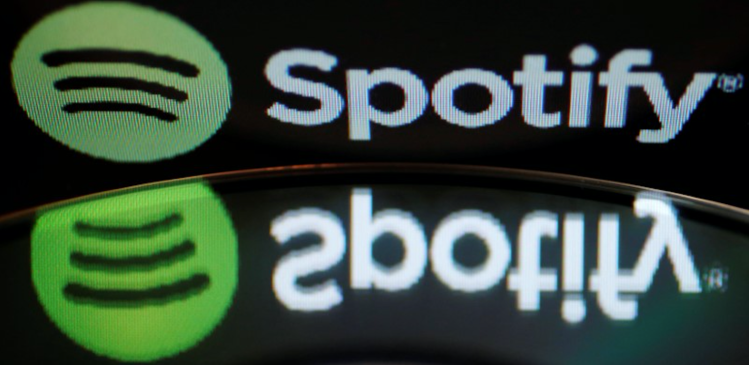There’s no narrative the tech industry likes quite as much as a good revolutionary tale in which a startup pursues a strategy that topples an established order. Such a mythology is now being constructed around the upcoming Spotify IPO.
It goes like this: Spotify is doing an end run around investment banks by listing its shares directly on the stock market. This is supposed to result in fewer fees for impoverished investment banks and new freedom for tech companies. That was the vibe of a story by the Wall Street Journal this week: “Spotify Disrupted the Music World, Now It’s Doing the Same to Wall Street.”
The reality is that by taking this route Spotify is pursuing a risky strategy. And it’s likely only doing so because it was backed into a corner by its investors and by private fundraising that led to a dangerously high valuation of $19 billion.
“This is not a story of problems in the IPO market,” according to Kathleen Smith, a principal at Renaissance Capital and manager of IPO ETFs. “It’s a problem with Spotify’s valuation.”
June 5th: The AI Audit in NYC
Join us next week in NYC to engage with top executive leaders, delving into strategies for auditing AI models to ensure fairness, optimal performance, and ethical compliance across diverse organizations. Secure your attendance for this exclusive invite-only event.
Spotify’s fate is going to be closely monitored, of course. The recent era of ballooning startup valuations has created a herd of unicorns that are now trying to decide between filing for an IPO and searching for a buyer that could justify the astronomical amounts investors have already pumped into their company. Certainly, many will be watching to see if Spotify’s creative solution opens a door that allows them to finally exit their own valuation purgatory.
But Spotify’s situation involves a lot of specifics that may not make it an appealing model for others to follow. To understand why, let’s jump back a couple of years. Spotify was the clear king of music streaming. Then in June 2015, Apple finally launched its Apple Music subscription service, and Spotify was suddenly confronted with a gigantic competitor that could print its own money.
So in March 2016 Spotify closed a deal to raise $1 billion in debt from a syndicate of investors: TPG, investment firm Dragoneer, and Goldman Sachs clients. However, that debt came with some onerous terms that all but required Spotify to IPO within a year’s time.
The debt investors had the right to convert the debt to stock during the IPO at a 20 percent discount. But the longer Spotify waited to IPO, the bigger that discount grew. In addition, the interest rate on the debt would increase over time.
Thus, Spotify needed to get to the public market ASAP. But while it continues to grow subscribers at a faster rate than Apple Music, Spotify remains wildly unprofitable a decade into its existence. It posted an annual net loss of $568 million (including some one-time charges) in financials leaked last summer. The IPO market in the U.S. has been pretty awful the last couple of years, but it’s been particularly harsh for unprofitable companies that don’t offer a clear road to profitability.
What to do?
The problem with the valuation was that it was going to be tough to convince investors to back that stock at such a price. So Spotify chose the route of a direct listing that would allow its stock to simply start trading on the stock exchange. But this means the company will not raise any money itself, something that historically has been one of the main reasons to go public.
But while Spotify won’t raise any money, at least it won’t have to dilute its stock by issuing more shares, and investors should finally be able to get some liquidity. And yes, it will pay lower banking fees.
This is probably Spotify’s best choice, but it’s certainly not an ideal tradeoff, and it’s hardly the stuff of revolutions. It’s a move driven by need and opportunity.
“There is an issue with Spotify,” Smith said. “And they are trying to solve the problem by selling their shares publicly in an unorthodox manner. The strategy is not fully baked.”
Just to get permission to hold a direct listing, Spotify has had to run an unusually intense gauntlet of scrutiny before the U.S. Securities and Exchange Commission. In addition, to relieve some of the pressure of the ticking time bomb of its debt, the company helped arrange for some of those debt holders to convert their debt to shares and sell them to Chinese giant Tencent late last year.
According to Recode, TPG and Dragoneer sold some — but not all — of their holding to Tencent. The two firms still hold some debt, along with Goldman Sachs clients.
Finally, while it’s easy to sneer at investment banks, in the case of IPOs they provide some important functions. They help build relationships with potential buyers — like mutual funds and wealthy clients — and make certain guarantees about supporting the stock as it goes public.
When Spotify’s stock starts trading, it’s going to be facing a lot of unknowns in terms of who will buy it and how much they will buy. If current shareholders start trying to dump their shares, the price could crater. There’s a chance the hype around streaming will make for a big debut. But the company’s unprofitability and the competition with Apple loom as giant clouds over its stock price.
Given the large number of unusual variables, Spotify should most likely brace for a wild ride when trading starts.
“It could be a rough time for the stock,” Smith said.

